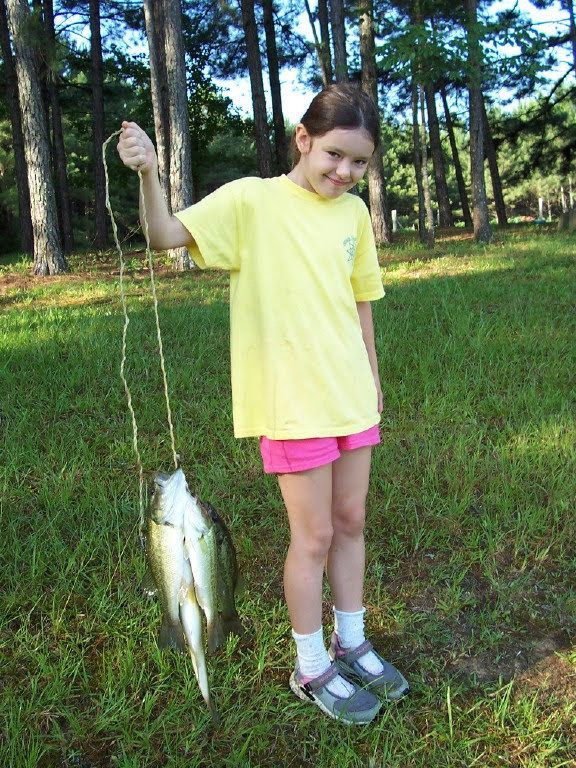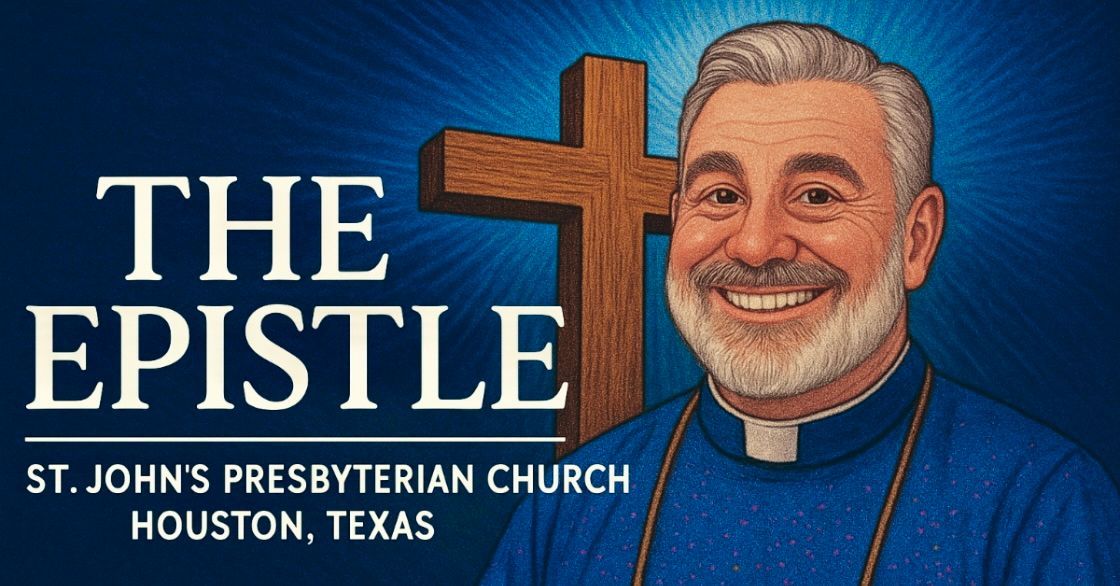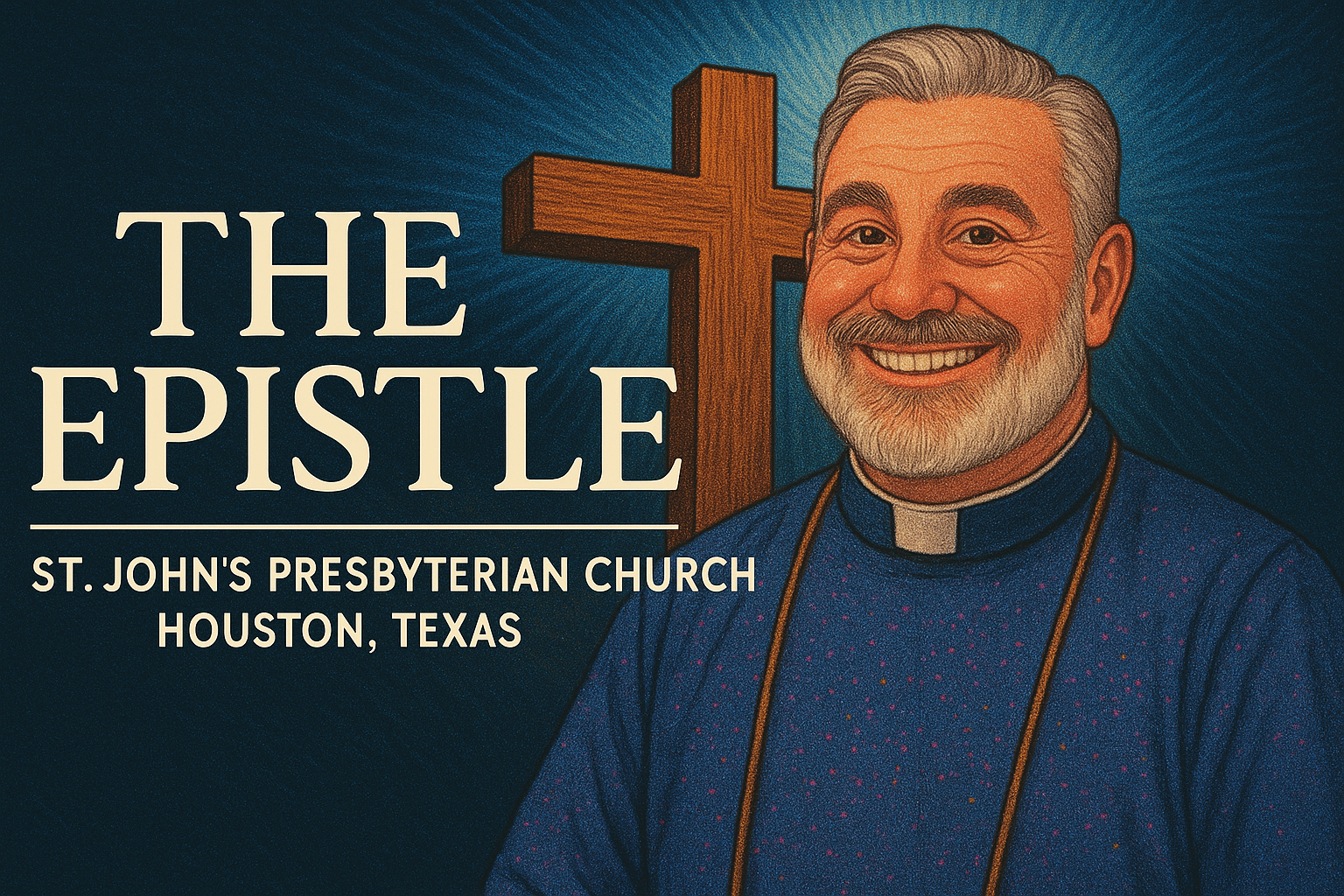Kids Fishing Clinic at Willow Waterhole: Free Family Event December 6
When was the last time your child spent an entire morning outside learning a real skill?
I’m not talking about another screen-based activity or indoor program where kids sit in rows. I mean actually outside, handling equipment, learning from adults who know what they’re doing, and discovering something new about the natural world right in their own neighborhood.
On Saturday, December 6, 2025, from 10am to 2pm, Willow Waterhole Greenspace Conservancy and Texas A&M Agrilife Extension 4-H Harris County are hosting a free Kids Fishing Clinic at Willow Waterhole (5600 S Willow Road, 113). Children ages 5 to 13 can learn the basics of fishing in a hands-on environment with experienced instructors, and everything is provided: rods, bait, snacks, and drinks.
As a pastor who has worked with families and children for decades, I get excited about programs like this. Not just because kids need outdoor time (though they absolutely do), but because activities like fishing teach patience, attention, respect for nature, and the satisfaction of learning a skill that takes practice. These are the same qualities that form the foundation for spiritual growth.
And here’s something that strikes me every time I think about Jesus and his first disciples: he called fishermen. Not because fishing was easy or glamorous, but because fishermen understood things that translate directly to following Jesus. They knew about patience, persistence, reading signs, working with what you can’t control, and the difference between empty nets and full ones.
Let me tell you why this fishing clinic matters, how it connects to the way Jesus shaped his followers, and why St. John’s Presbyterian Church thinks outdoor learning experiences are essential for raising children who understand both the world God made and the God who made it.
What Makes This Fishing Clinic Special
First, let’s talk about what actually happens at this event. The clinic runs for four hours, giving kids real time to learn and practice instead of rushing through a quick demonstration. Instructors teach casting techniques, how to bait a hook, basic fish identification, and proper handling of equipment and fish.
This is hands-on learning at its best. Kids don’t watch someone else fish. They hold the rod. They practice casting. They learn to feel the line. They experience the anticipation of waiting for a bite and the excitement when something actually tugs.
The clinic is designed for children who have never fished before, so no experience is necessary. Parents or chaperones must stay with their children (which is actually one of the best parts because you get to share this experience together). The organizers provide all equipment, which removes the barrier that stops many families from trying fishing: not knowing what gear to buy or whether their kids will even like it.
Texas A&M Agrilife Extension 4-H brings serious expertise to youth outdoor education. These aren’t random volunteers. These are trained instructors who know how to teach kids, how to make learning fun, and how to create safe environments where children can try new things without fear of failure.
The location at Willow Waterhole adds another layer of value. This greenspace is a beautiful natural area right in southwest Houston, just minutes from St. John’s Presbyterian Church at 5020 West Bellfort Avenue. Many of our church families use Willow Waterhole regularly for walking trails and nature observation. It’s a neighborhood treasure that offers the kind of outdoor access every community needs.
For families looking for “kids activities near me” or “free family events Houston,” this fishing clinic delivers exactly what you want: quality instruction, safe environment, no cost, and the chance for your children to learn something meaningful.
Jesus the Fisherman: Why This Imagery Matters
When Jesus began his public ministry, he went to the Sea of Galilee and called his first disciples. The Gospel of Mark records it simply: “Come, follow me, and I will send you out to fish for people.” (Mark 1:17)
He didn’t recruit from the religious establishment. He didn’t look for people with impressive credentials or theological training. He called fishermen: Peter, Andrew, James, and John. Men who knew nets and boats, weather patterns and fish behavior, hard work and uncertain outcomes.
Why fishermen? I think it’s because fishing teaches you things that matter for following Jesus.
Fishing requires patience. You can’t force fish to bite. You prepare properly, cast your line, and wait. Sometimes you wait for hours. Children in our instant-gratification culture desperately need to learn that good things often require patient waiting. That’s a spiritual discipline as much as a fishing skill.
Fishing demands attention. You have to watch the line, feel for movement, notice changes in the water. Distraction means missed opportunities. Learning to pay attention, to be present in the moment, to notice what’s actually happening instead of what you think should happen… these skills translate directly to spiritual awareness.
Fishing teaches you to work with forces beyond your control. You can’t control the fish, the weather, the water conditions. You work with what you’re given. You adapt. You learn to read situations and respond appropriately. That’s exactly what following Jesus requires: responding faithfully to circumstances you didn’t choose.
Fishing shows the difference between effort and outcome. You can do everything right and catch nothing. You can make mistakes and still land something. The relationship between what you do and what happens is never purely mechanical. There’s mystery involved, factors beyond your control, and outcomes you can’t predict. That’s true of faithful living too.
When kids learn to fish, they’re learning more than a recreational skill. They’re developing patience, attention, adaptability, and comfort with uncertainty. These are the same qualities that allow faith to grow deep roots.
Why Outdoor Experiences Matter for Children
We’re raising the first generation of children who spend more time indoors than any previous generation in human history. Research shows that children today spend an average of seven hours daily on screens and less than one hour outdoors. That’s backward from every previous generation, and we’re seeing the consequences in childhood anxiety rates, attention problems, and disconnection from the natural world.
Outdoor experiences provide something screens cannot: direct encounter with the physical world. Kids learn that actions have real consequences. If you cast poorly, your line tangles. If you handle a fish roughly, it gets hurt. If you don’t pay attention, you miss the bite. Cause and effect are immediate and undeniable.
Nature teaches patience in ways that apps and games never will. You cannot swipe to make the fish bite faster. You cannot skip to the exciting part. You experience time differently outdoors, where things happen at their own pace and you adjust to that rhythm rather than demanding everything accelerate to match your impatience.
Outdoor activities build competence in ways that boost genuine self-confidence. When a child learns to cast a fishing line properly, they’ve mastered a real skill that requires coordination, practice, and attention. That’s different from leveling up in a video game. It’s accomplishment in the actual world, and kids know the difference.
For families looking for “children’s activities Houston” or “kids outdoor programs near me,” events like this fishing clinic offer exactly what children need: time outside, hands-on learning, skill development, and the satisfaction of doing something real.
How This Connects to Faith Formation
At St. John’s Presbyterian Church, we think a lot about how children develop faith that lasts. We’ve learned that authentic faith doesn’t come from entertainment-style children’s programs where kids are passive consumers. It comes from experiences where children encounter God’s world, practice spiritual disciplines appropriate to their age, and participate in a community that takes them seriously.
Outdoor experiences like this fishing clinic provide natural opportunities for the kind of conversations that form faith. When a child catches their first fish, they experience excitement, pride, maybe a little fear about handling something alive and slippery. Those emotions create openings for talking about Creation, about our relationship with the natural world, about the God who made fish and water and the human capacity to learn new skills.
Parents who participate in this clinic with their children get four hours of side-by-side time where conversation happens naturally. You’re not staring at each other across a table forcing discussion. You’re doing something together, and talk flows more easily that way. These are the moments when real formation happens, when faith gets transmitted from one generation to the next through shared experience and natural conversation.
The biblical imagery of fishing shows up throughout Scripture. Jesus tells his disciples they’ll fish for people. He teaches from a boat while crowds gather on shore. He cooks fish for his disciples after the resurrection. He tells parables about nets full of fish. When children learn to fish, parents have dozens of natural opportunities to connect that experience to the stories of Jesus.
This is how children learn faith: not through abstract lessons but through concrete experiences that connect to biblical truth. When you stand together by water, holding fishing rods, waiting for something to happen, you’re doing what Peter and Andrew and James and John did before Jesus called them. You’re in the posture of people who would become disciples.
St. John’s Children’s Ministry Approach
Our church offers Children’s Sunday School at 11 AM during our worship service, giving children age-appropriate Bible learning while parents worship. But we also recognize that some families prefer to keep their children in worship with them, and we welcome that choice. We’ve set up a child rest and play area in the back of our sanctuary with a rocking chair and small work table so families who keep their kids in worship have a comfortable space where children can move, play quietly, or rest when needed.
This flexible approach reflects our belief that different families form faith in different ways. Some children benefit from dedicated teaching time with other kids. Some learn best by participating in the full worship experience with their parents. We support both approaches because we know that authentic faith formation happens through multiple paths, not one-size-fits-all programming.
Before worship, we offer Sunday morning Bible study at 9:30am where children and adults of all ages can dig into Scripture, ask questions, and begin conversations that continue throughout the week.
We believe children need outdoor time, physical activity, and hands-on learning. We maintain an 18-bed community garden where families can volunteer together, getting their hands dirty while growing food for our neighborhood food pantry. We encourage our families to participate in community events like this fishing clinic because we know that faith formation happens everywhere, not just in church buildings.
What we don’t do is create elaborate children’s programming that requires massive resources and turns kids into passive consumers of religious entertainment. We’ve watched too many churches exhaust themselves trying to compete with Disney-level production while actually forming shallow faith that doesn’t survive the teenage years.
Instead, we focus on helping parents be the primary faith formers for their children. We provide Children’s Sunday School for focused learning time, Sunday Bible study for all ages, youth fellowship opportunities, and seasonal celebrations that bring families together. But we also encourage parents to look for formative experiences in the regular rhythms of life: outdoor activities, community events, service projects, and the daily practices that teach children what matters.
When parents register their children for this fishing clinic, they’re doing the kind of thing we encourage: finding quality experiences where kids learn real skills, spend time outside, and have opportunities for the kind of conversations where faith naturally develops.
Practical Details: How to Register Your Child
The Kids Fishing Clinic on December 6, 2025, has limited spots available, and registration is required. You can register through the online form at <https://forms.gle/wuNtcBMd6sewbUUN8>.
Here’s what you need to know:
When: Saturday, December 6, 2025, from 10am to 2pm
Where: Willow Waterhole, 5600 S Willow Road, 113, Houston, TX
Ages: 5 to 13 years old
Cost: Completely free
Requirements: Parent or chaperone must be present with their child
What’s provided: All fishing equipment, bait, instruction, snacks, and drinks
What to bring: Comfortable outdoor clothes, sunscreen, water bottle, and enthusiasm
The clinic teaches basic fishing skills including casting techniques, how to bait hooks, fish identification, proper equipment handling, and safe fish handling. No previous experience is necessary, and instructors work with each child’s skill level.
Because spots are limited, don’t wait to register. This is the kind of event that fills up quickly once parents realize it’s free, high-quality, and genuinely valuable for their children. If you’re looking for “kids fishing lessons Houston” or “free children’s activities near me,” this clinic is exactly what you want.
Why Parents Should Prioritize This Experience
I know Saturday mornings are precious. You might be tempted to let your kids sleep in or catch up on household tasks or just have a quiet morning at home. But here’s why this fishing clinic is worth rearranging your schedule:
Your child will learn a skill that connects them to thousands of years of human experience. People have fished since the beginning of civilization. Teaching your child to fish puts them in touch with something ancient and essential, not just another trendy activity that will be forgotten next year.
You’ll get four hours of focused time with your child doing something together. How often does that happen? Most family time is fragmented: driving to activities, sitting in waiting rooms, rushing through meals. This clinic gives you extended time side by side with your child, learning together.
Your child will experience the satisfaction of learning something difficult. Fishing isn’t easy. It requires coordination, patience, and practice. When your child successfully casts a line or catches their first fish, they experience real accomplishment. That builds the kind of confidence that comes from genuine competence, not just adult praise.
You’ll introduce your child to outdoor recreation that doesn’t require expensive equipment or exotic locations. Once your child knows how to fish, you can do it anywhere there’s water. It’s accessible recreation that can last a lifetime.
You’ll connect with other families who value outdoor experiences for their children. The fishing clinic brings together parents who made the same choice you did: prioritizing hands-on learning over screen time. Those connections can lead to friendships that enrich your family’s life.
You’ll have natural opportunities to talk about creation, patience, paying attention, and the biblical stories where fishing plays a central role. These conversations plant seeds that can grow into deeper faith understanding as your child develops.
For families looking for “Presbyterian children’s programs Houston” or “family faith activities near me,” this clinic represents exactly the kind of formative experience we encourage at St. John’s Presbyterian Church. We don’t compete with it by offering conflicting church programming. We celebrate it and encourage our families to participate.
The Bigger Picture: Formation Takes Time
Our culture pressures parents to pack children’s schedules with activities, lessons, and programs. The assumption is that more programming produces better outcomes. But research on child development suggests the opposite: children need unstructured time, outdoor play, and experiences where they learn at their own pace without constant adult direction.
This fishing clinic offers structured learning (kids aren’t just wandering around with fishing poles), but it’s structured in a way that respects how children actually learn. There’s instruction, but also practice time. There’s guidance, but also space for kids to figure things out. There’s success and failure, excitement and boredom, competence and struggle.
That’s real learning. And it’s slow. You can’t rush someone’s casting technique. You can’t force fish to bite faster. You adjust to the pace of actual learning and actual nature, not to some artificial schedule that prioritizes efficiency over depth.
Faith formation works the same way. You can’t rush it. You can’t manufacture it through programming. You create conditions where it can grow: experiences that raise good questions, relationships with adults who take faith seriously, participation in a community that practices what it believes, and time to let understanding develop naturally.
When St. John’s Presbyterian families participate in events like this fishing clinic, they’re choosing depth over frenzy. They’re saying that four hours learning to fish is more valuable than four hours of rushed activities. They’re prioritizing the kind of experience where real learning happens and real conversations emerge naturally.
That’s the approach we take to children’s ministry too. We don’t try to entertain kids into faith. We create space for faith to develop through meaningful participation in community, through Bible study that takes their questions seriously, through worship where they belong rather than being segregated, and through encouragement to find God in outdoor experiences, family activities, and the regular rhythms of life.
Connection to Community Service and Mission
One of the things kids will learn at this fishing clinic is proper fish handling: how to treat fish respectfully, why catch-and-release matters, and how our actions affect the creatures we encounter. This connects directly to our understanding of stewardship and care for creation.
At St. John’s Presbyterian, we take seriously our responsibility to care for the world God made. Our community garden provides fresh produce for the Braes Interfaith Ministries food pantry, teaching kids that the soil we tend feeds our neighbors. Our partnership with Houston International Seafarers Center connects us to people who work on the water. Our mission commitments reflect the belief that faith expresses itself through service to others and care for creation.
When children learn to fish, they’re learning to interact respectfully with living creatures and natural environments. They’re learning that the water isn’t just there for human entertainment but is habitat for other living things. They’re learning that we have responsibility for how we treat the natural world.
These lessons connect to biblical teaching about stewardship, about humans as caretakers of creation, about our responsibility to use resources wisely and treat living things with respect. For parents looking for ways to help their children understand faith that affects how we live, experiences like this fishing clinic provide concrete opportunities for those conversations.
Making December 6 a Priority
Saturday, December 6, 2025, from 10am to 2pm. Four hours that could shape how your child sees the natural world, how they approach learning new skills, and how they spend time with you in focused, meaningful activity.
This isn’t just another activity to check off your list. It’s an opportunity to give your child something screens cannot provide: direct encounter with the natural world, hands-on learning of a real skill, and extended time with you doing something together.
Registration is required and spots are limited. You can register now at <https://forms.gle/wuNtcBMd6sewbUUN8>. Don’t wait until the week before and discover it’s full.
Mark your calendar. Plan for it. Make it a priority. Your child will remember this day, not because it was flashy or expensive, but because you spent time together learning something real.
And if you’re looking for a church community that supports this kind of family formation, that values outdoor experiences and hands-on learning, that keeps faith connected to real life rather than isolated in religious programming, we’d love to meet you at St. John’s Presbyterian Church.
An Invitation to Visit St. John’s
We’re located at 5020 West Bellfort Avenue, just minutes from Willow Waterhole where this fishing clinic takes place. We gather for worship every Sunday at 11:00 AM, with Sunday morning Bible study at 9:30 AM for both adults and children.
Our children’s ministry keeps kids in worship with their families because we believe they learn faith by participating in the full life of the community. We offer Sunday Bible study where children can ask questions and hear stories at their level. We encourage families to participate in community events, outdoor activities, and service projects that form faith through real experience rather than just religious programming.
We’re a small church of about 250 members, averaging 75 in Sunday worship. We keep our congregation intentionally intimate so people can actually know each other, be needed for meaningful contributions, and be missed when absent. We prioritize authentic relationships over flashy programs, mission work over entertainment, and depth over breadth.
If you’re looking for a church that takes children seriously without overwhelming them with programming, that values outdoor experiences as part of faith formation, and that believes following Jesus means being good neighbors in our community, we’d love to have you visit.
You can reach us at (713) 723-6262 or office.sjpc@gmail.com with any questions about our
children’s ministry,
Sunday Bible study, or
what to expect when you visit.
Where Faith and Fishing Meet
When Jesus called those first fishermen to follow him, he was inviting them into something that would use every skill they’d developed by the water. The patience, the attention, the comfort with uncertainty, the ability to work with forces beyond their control, the understanding that success can’t be manufactured but only received as gift.
Those same qualities develop when children learn to fish. Not automatically, of course. But when parents use experiences like this fishing clinic as opportunities for conversation, for reflection, for connection to biblical truth, those qualities begin to form.
That’s why we encourage our families at St. John’s Presbyterian to register their children for this clinic. Not because fishing is essential to salvation, but because the kind of formation that happens when kids learn real skills in outdoor environments creates capacity for the kind of faith that goes deep and lasts.
Jesus knew what he was doing when he called fishermen. He was calling people who already understood something essential about the life he was inviting them into.
Give your child that same foundation. Register them for the Kids Fishing Clinic on December 6 at Willow Waterhole. Spend four hours together learning something real. Have conversations about creation, about patience, about paying attention, about the Jesus who called fishermen to follow him.
And when you’re ready to explore a church community that supports this kind of formation, we’ll be here at St. John’s Presbyterian, just down the street from where your child learned to cast their first line.
-----
St. John’s Presbyterian Church
5020 West Bellfort Avenue
Houston, TX 77035
(713) 723-6262
office.sjpc@gmail.com
Sunday Worship: 11:00 AM
Sunday Bible Study: 9:30 AM
Kids Fishing Clinic Registration:
<https://forms.gle/wuNtcBMd6sewbUUN8>
December 6, 2025, 10am-2pm
Willow Waterhole, 5600 S Willow Rd 113





